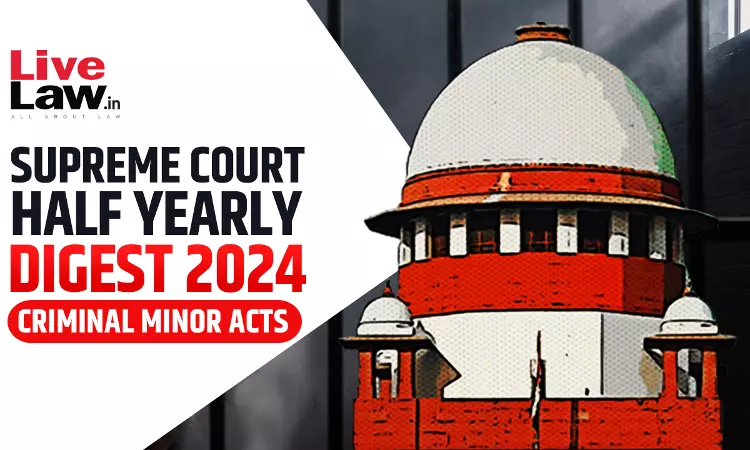- Home
- /
- Supreme court
- /
- Supreme Court Half Yearly Digest...
Supreme Court Half Yearly Digest 2024 - Criminal Minor Acts
LIVELAW NEWS NETWORK
8 Sept 2024 1:02 PM IST
Food Safety and Standards Act, 2006If a case is registered against an accused for food adulteration under the Indian Penal Code, 1860 (“IPC”), then by virtue of the overriding effect of Section 89 of Food Safety and Standards Act, 2006 (“FSSA”), the proceedings under IPC cannot be continued against the accused. There cannot be simultaneous prosecution under the IPC and FSSA because...
Next Story



